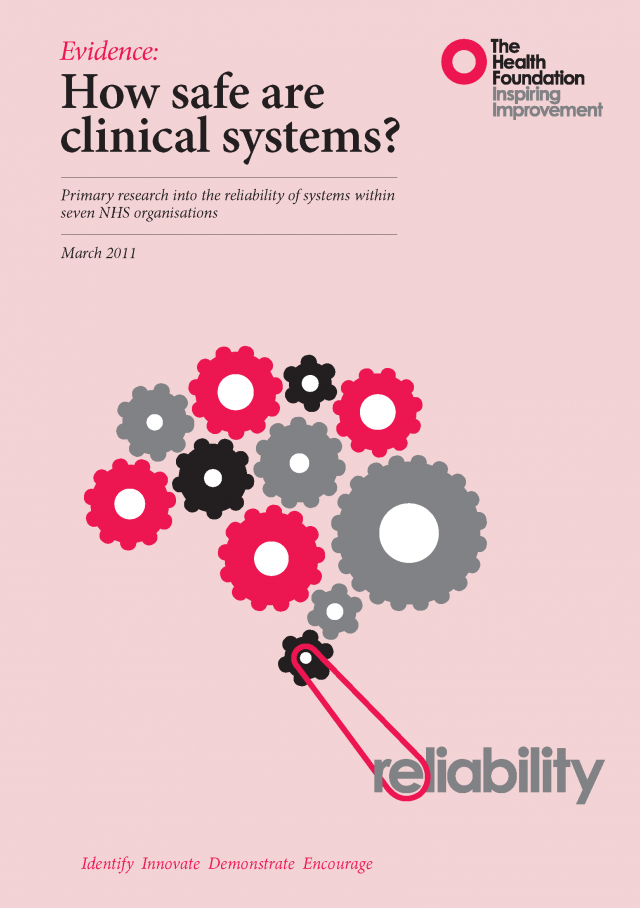Evidence: How safe are clinical systems? Primary research into the reliability of systems within seven NHS organisations and ideas for improvement
May 2010

Key points
- This study of seven NHS organisations found extreme variability in the reliability of five key healthcare systems and processes:
- availability of information when making clinical decisions
- prescribing
- handover
- availability of equipment in operating theatres
- availability of equipment for inserting intravenous lines.
- Different organisations varied significantly in their reliability on issues such as faulty or missing equipment.
- Unreliability in different organisations was the result of common factors (eg a lack of feedback mechanisms and poor communication).
- It is possible to create highly reliable systems.
- Ideas for improvement are suggested:
- improving feedback mechanisms
- standardisation
- improving communication
- developing a culture of challenge
- encouraging a sense of ownership.
While the knowledge that poor systems can cause harm is not new, this report provides groundbreaking evidence of the extent to which important clinical systems and processes fail, and the potential these failings have to harm patients.
The research, led by Professor Bryony Dean-Franklin, was conducted by The Centre for Patient Safety and Service Quality (CPSSQ) at Imperial College, and Warwick Clinical Systems Improvement (CSI), University of Warwick.
Related content
Work with us
We look for talented and passionate individuals as everyone at the Health Foundation has an important role to play.
View current vacanciesThe Q community
Q is an initiative connecting people with improvement expertise across the UK.
Find out more

